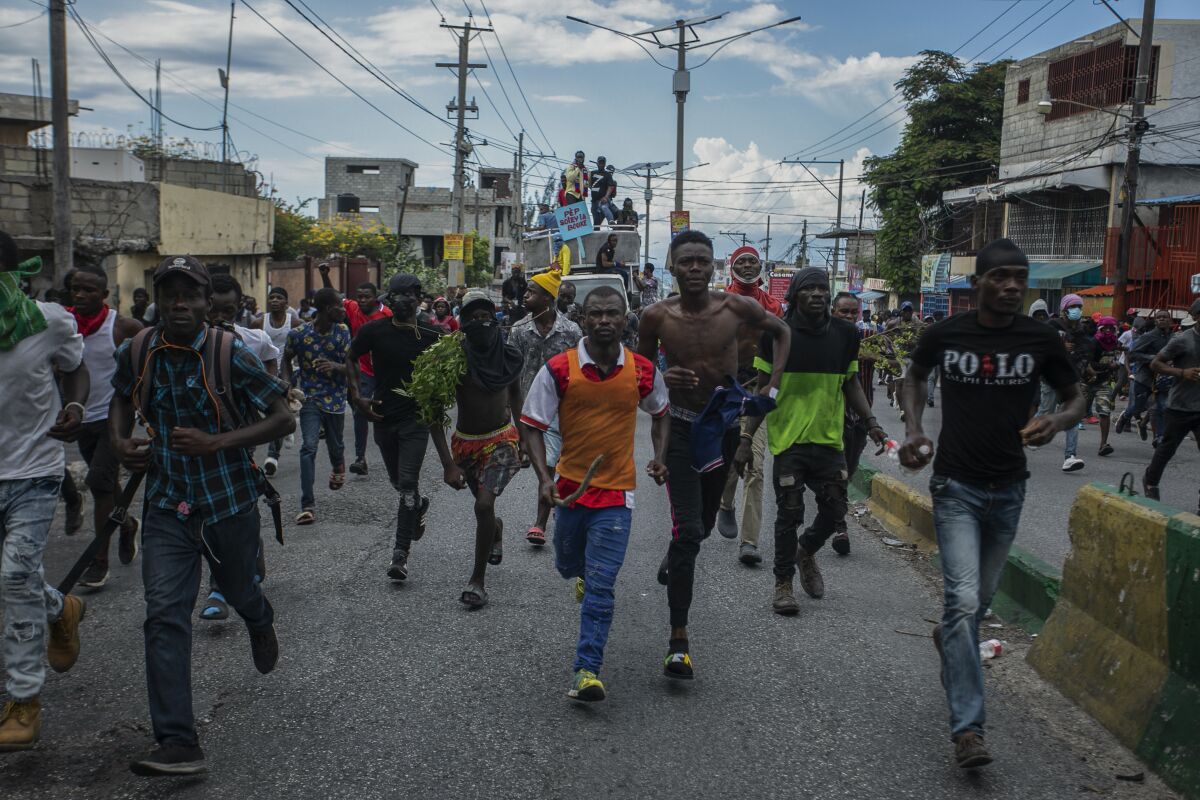WASHINGTON, (Reuters) – U.S. and Canadian military aircraft today delivered tactical and armoured vehicles and other supplies to the Haitian National Police (HNP) to help combat criminal gangs that have worsened a humanitarian crisis in Haiti.
“This equipment will assist the HNP in their fight against criminal actors who are fomenting violence and disrupting the flow of critically needed humanitarian assistance, hindering efforts to halt the spread of cholera,” the U.S. and Canadian governments said in a joint statement.
Haitians are experiencing catastrophic hunger because of gangsters blockading a major fuel terminal, U.N. officials said on Friday, with more than 4 million facing acute food insecurity.
A coalition of gangs has prevented the distribution of diesel and gasoline for over a month to protest a plan to cut fuel subsidies. Most transport is halted, with looting and gang shootouts becoming increasingly common.
The United States and Canada stepped in to transport the Haitian government-purchased equipment when the company faced delivery delays, a State Department spokesperson said, adding that Washington would continue efforts to strengthen the Haitian police.
The U.N. Security Council is considering creating a sanctions regime to impose an asset freeze, travel ban and arms embargo on anyone who threatens the peace, security or stability of Haiti, according to a draft resolution seen by Reuters on Thursday.
U.N. Secretary-General Antonio Guterres has proposed that one or several countries send “a rapid action force” to help Haiti’s police remove a threat posed by the gangs, according to a letter to the Security Council, seen by Reuters.
The U.S. and Mexico-drafted resolution would take note of Guterres’ letter and encourage “the immediate deployment of a multinational rapid action force to support the HNP, as recommended in the Secretary-General’s letter.”
The 15-member Security Council could vote as early as Monday on the draft resolution, diplomats said. To be adopted a resolution needs nine votes in favor and no vetoes by permanent members Russia, China, the United States, France or Britain.

